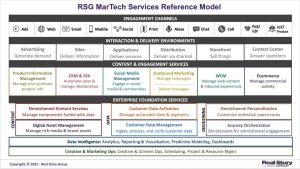— September 18, 2017

FirmBee / Pixabay
As a small business owner, you hear this all the time on the phone. Somebody calls from a credit card processing company offering up their product. It could even be the same guy that has been hounding you for months or years, but it is still hard to quite understand what he is selling you.
Whether the concept of credit card processing is new to you or you just want to learn more about the subject it will make your life easier. There are a few distinct ways I think integration can improve the quality of work.
Here are the three ways integrating payment processing can help your small business:
Using Payment processing integration gives you more time to focus other things
If you don’t use processing integration, you might be used to every transaction looking like this:
1. Take orders over the phone, on the internet, or in person.
2. Swipe card or key card info into terminal or system.
3. Print invoice or receipt and file away to look over at a later time.
4. Using an accounting system sit down and sort through invoices and implement them into the system.
5. Pray you didn’t miss anything, and hope everything is imputed perfectly.
Using an integrated system, your process would look a little more like this:
1. Take orders over the phone, on the internet, or in person.
2. Sit down at accounting system and swipe or key the card into the system directly.
That’s it. There is no third step. Imagine all the things you could be doing with your time instead of implementing payments manually into your system. You can find something more pressing that needs your time or you can just go home a little earlier.
Finding and implementing a system that works for you will leave you with extra time and less headache. This leads me to my next point.
You cut labor costs with Payment processing integration
Cutting the steps that were listed above, saving the aggravation and getting home a little earlier is just one benefit. In a company where you employ somebody else to do some of the leg work, you can save there as well. Not having that extra work quite simply cuts costs.
How much money does that give you? On the safe side, let’s say entering payments takes you a half hour every day and you work an average five day week. That saves you 2.5 hours of work per week. When you multiply that by 52 weeks that is 26 hours of labor that you are saving.
Accountants aren’t cheap. When you multiply that by the rate that you would pay one you are saving a good chunk of money. This is just by cutting out a half hour of work on a daily basis. A company integration that’s most useful to, you could be spending a lot more than 30 minutes daily. This would make the labor you would be saving money on significantly cheaper.
If these two reasons to adopt credit card integration into your business aren’t enough, this next reason could maybe change your mind.
Payment Processing integration saves you money on the transactions
For many businesses, this can be the difference when it comes to switching from a non-integrated system to a fully integrated system. Saving time can make life less stressful. Cutting labor costs can help you save cash but doesn’t apply to every small business.
Saving money on each transaction itself, however, is a much bigger deal. Integration can lower transaction costs which help increase margins on every item you sell.
Let’s give an example of a small one or two man company that sells an expensive product at low volumes. There is a chance you might even go a few days without a credit card sale. Saving time isn’t going to draw you to integrating because you don’t spend more than a few minutes a day imputing your invoices.
For the same reason, you don’t stand to save money cutting labor costs because you either have no or very little. So where does credit card processing integration stand to help a business like this?
The fact of the matter is that there are processors out there that provide you an advantage based on volume and other factors. Not all credit card processors do this, but there are some that do.
If you own a business that makes ten sales a month at $ 15,000 your monthly credit card volume is $ 150,000. Let’s say you for simplicity sake are selling to businesses only and these businesses are using visa cards. These cards typically cost you 2.65% of a transaction’s volume to accept for payment.
We know that right out the door, without any other fees and charges at a 2.65% rate for a $ 150,000 volume you’re paying $ 3975 every month. Using a processor that has a flexible rate on visa transactions if you dropped that from 2.65% to 2% you would save $ 975 a month. A small business owner saving almost 12,000 a year can help your business grow in other ways.
Business & Finance Articles on Business 2 Community
(34)







